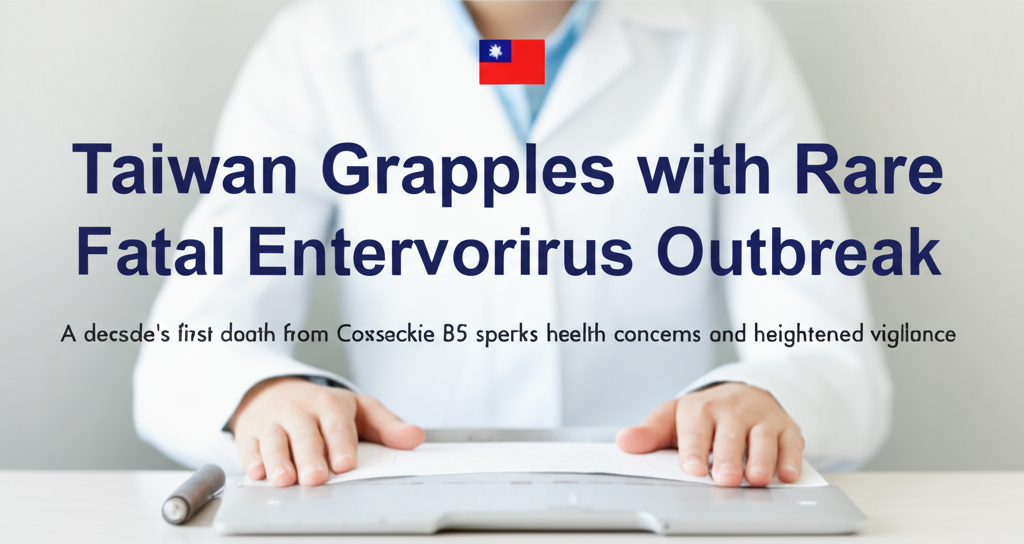Taiwan Grapples with Rare Fatal Enterovirus Outbreak
A decade's first death from Coxsackie B5 sparks health concerns and heightened vigilance.

Taipei, Taiwan - The island nation is facing a renewed health challenge as the Taiwan Centers for Disease Control (CDC) announces the first fatality from Coxsackie B5 enterovirus in a decade. The tragic event involves a 1-year-old boy from southern Taiwan who succumbed to complications in early March.
CDC Spokesman
This unfortunate event also marks Taiwan’s third enterovirus-related death this year and the first severe Coxsackie B5 infection of 2025, according to
While Coxsackie B5 typically manifests with mild symptoms, such as fever, cough, mouth ulcers, and blisters on the hands and feet, severe complications are relatively uncommon. However, this recent case underscores the unpredictable nature of the virus.
CDC data reveals that since 2014, Taiwan has recorded only eight severe cases of Coxsackie B5 infection, including the most recent fatality. This new case raises serious concerns regarding the current situation.
Adding to the concern,
With the expected rise in temperatures in April, enterovirus activity is anticipated to increase significantly.
The CDC is urging parents, particularly those with children under two years old, to prioritize strict hygiene practices and remain vigilant for early warning signs of severe infection. These signs include persistent vomiting, drowsiness, muscle twitching, or difficulty breathing.
Other Versions
Taiwán se enfrenta a un raro brote mortal de enterovirus
Taïwan aux prises avec une rare épidémie mortelle d'entérovirus
Taiwan Bergulat dengan Wabah Enterovirus Fatal yang Langka
Taiwan alle prese con un raro focolaio fatale di Enterovirus
台湾でエンテロウイルスの致死的流行が発生
대만, 희귀한 치명적 장내 바이러스 발생과 씨름하다
Taiwan Nakikipagbuno sa Bihirang Nakamamatay na Paglaganap ng Enterovirus
Тайвань борется с редкой вспышкой энтеровируса с летальным исходом
ไต้หวันเผชิญกับการระบาดของเชื้อไวรัส Enterovirus ชนิดรุนแรงที่หายาก
Đài Loan Đối Mặt với Đợt Bùng Phát Enterovirus Hiếm Gây Tử Vong

